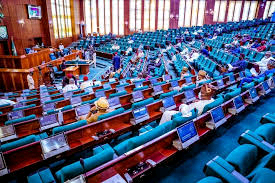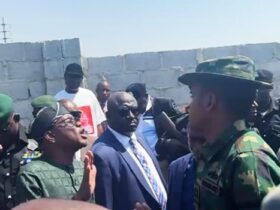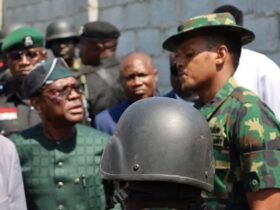A Controversial Decision
In a move that has sparked widespread debate and criticism, the House of Representatives has approved President Bola Tinubu’s declaration of a state of emergency in Rivers State. The decision, made via a voice vote on Thursday, also includes the six-month suspension of Governor Siminalayi Fubara, his deputy, and all elected members of the state assembly. Despite strong opposition from stakeholders, including the South-South Governors’ Forum and civil society groups, the House has thrown its weight behind the federal government’s controversial move.
The Approval: A Voice Vote Amid Outcry
The House of Representatives’ decision to approve the state of emergency and the suspension of Rivers State’s elected officials came after heated deliberations. Lawmakers voted overwhelmingly in favor of the motion, despite vocal objections from some members who argued that the move undermines democratic principles and sets a dangerous precedent.
The approval grants the federal government sweeping powers to take control of governance in Rivers State for a period of six months. During this time, Governor Fubara, his deputy, and members of the state assembly will be barred from performing their official duties. The federal government is expected to appoint an administrator to oversee the state’s affairs until the emergency period ends.
The Backlash: Widespread Opposition
The decision has been met with fierce opposition from various quarters. The South-South Governors’ Forum, led by Bayelsa State Governor Douye Diri, had earlier called for the reversal of the state of emergency, arguing that it does not meet the constitutional requirements outlined in Section 305(3) of the Nigerian Constitution. Civil society organizations, legal experts, and opposition parties have also condemned the move, describing it as an overreach of executive power and a threat to democracy.

Critics argue that the declaration of a state of emergency is an extreme measure that should only be used in cases of widespread violence or natural disasters. They contend that the current political crisis in Rivers State, while serious, does not justify the suspension of democratic institutions and the removal of elected officials.
The Federal Government’s Justification: Restoring Order
President Tinubu and his administration have defended the declaration, citing the need to restore law and order in Rivers State. The federal government has pointed to the escalating political tensions, clashes between rival factions, and the breakdown of governance as justification for the move. Officials argue that the state of emergency is necessary to prevent further instability and ensure the safety of residents.
In a statement, the presidency emphasized that the decision was made in the interest of the people of Rivers State and the nation as a whole. “The federal government has a constitutional duty to maintain peace and security, and this decision was taken with the utmost consideration for the welfare of all Nigerians,” the statement read.
Implications for Rivers State: Governance in Limbo
The approval of the state of emergency and the suspension of elected officials have left Rivers State in a state of uncertainty. With the governor, deputy governor, and state assembly members barred from office, the federal government’s appointed administrator will assume control of the state’s affairs. This has raised concerns about the potential for abuse of power and the erosion of democratic norms.
Residents of Rivers State have expressed mixed reactions to the development. While some support the federal government’s intervention, others fear that the move could exacerbate tensions and deepen the political crisis. The suspension of elected officials has also sparked protests in some parts of the state, with demonstrators calling for the restoration of democratic governance.
A Broader Context: Political Tensions in Nigeria
The crisis in Rivers State is part of a broader pattern of political instability in Nigeria. In recent years, several states have experienced similar conflicts, often fueled by power struggles, allegations of corruption, and disputes over electoral outcomes. The federal government’s decision to declare a state of emergency in Rivers State has reignited debates about the balance of power between the federal and state governments and the limits of executive authority.
Legal experts have warned that the move could set a dangerous precedent, paving the way for the federal government to intervene in other states facing political crises. They have called for a review of the constitutional provisions governing states of emergency to ensure that such measures are used sparingly and only in cases of genuine necessity.
A Test for Nigeria’s Democracy
The House of Representatives’ approval of the state of emergency in Rivers State marks a significant moment in Nigeria’s political history. While the federal government has framed the decision as a necessary step to restore order, critics argue that it undermines democratic principles and threatens the autonomy of state governments.
As the situation unfolds, all eyes will be on Rivers State to see how the federal government’s intervention plays out. The crisis serves as a stark reminder of the fragility of democracy and the importance of upholding constitutional norms. For now, the people of Rivers State are left to navigate the uncertain waters of federal oversight, hoping for a resolution that prioritizes their welfare and restores democratic governance.
















Got a Questions?
Find us on Socials or Contact us and we’ll get back to you as soon as possible.